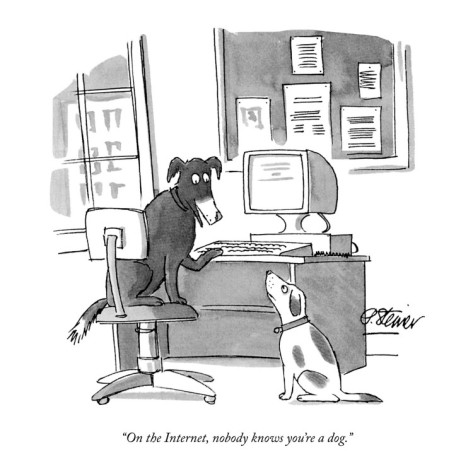-
Consideration of OCLC Records Use Policy
At ALA Midwinter, ALCTS sponsored a panel discussion about sharing library-created data inside and outside the library community, with a particular focus on cataloging data. I was honored to be ask to speak on the topic from the perspective of a consortial office. This is the first in a series …
Posted onand last updated January 28, 2009· 7 minutes reading time -
Google Book Search Settlement and Library Consortia
The Google Book Search Settlement Agreement includes two points where library consortia come into play: discounts for institutional subscriptions and receipt of digitized books by members of a consortium. The Google Book Search Settlement calls such consortia "Institutional Consortia" and the definition of that phrase and the places in the …
Posted onand last updated November 25, 2008· 5 minutes reading time -
Preliminary Court Approval of Google Book Settlement; Final Approval Hearing Set
The Associate Press reported on Monday evening that the court has given preliminary approval to the settlement negotiated between Google and book authors and publishers over the use of copyrighted materials in the Google Book Search Library project. In giving preliminary approval, Judge John E. Sprizzo authorized the publication of …
Posted onand last updated November 23, 2008· 4 minutes reading time -
Google Book Search Settlement: Public Access Service
One of the very relevant aspects of the Google Book Search Settlement Agreement to libraries is the provision that allows for free public access to the full text of books in public and academic libraries. The Notice of Settlement summary says: "Google will provide, on request, 'Public Access' licenses for …
Posted onand last updated November 11, 2008· 7 minutes reading time -
Is OCLC's Change of WorldCat Record Use/Transfer Policy Related to the Google Book Search Agreement?
Update
On the Code4Lib IRC channel Thursday afternoon, Roy Tennant, Senior Program Officer at OCLC Programs and Research, said that there is absolutely no connection between the policy change and the Google Book Search settlement.
The Original Post
Two big and seemingly unrelated things came to light on Tuesday of …
Posted onand last updated October 30, 2008· 4 minutes reading time -
George Mason University Issues Statement on Reuters/Zotero Lawsuit
George Mason University issued a statement this morning regarding the lawsuit filed against it by the Thomson Scientific division of Reuters. It looks like GMU intends to fight the lawsuit. It has restored the functionality that allowed Zotero to understand the EndNote® citation style file format and announced that it …
Posted onand last updated October 29, 2008· 4 minutes reading time -
Updates on the EndNote/Zotero Lawsuit
This is a brief update on the EndNote/Zotero lawsuit. The story thus far: The Thomson Scientific division of Reuters, maintainer of the EndNote software, is suing George Mason University over the upcoming release of Zotero, the Firefox plugin for managing citations. More specifically, the complaint filed in Virginia state …
Posted onand last updated October 06, 2008· 6 minutes reading time -
Extracts from the Thomson Reuters Lawsuit Against Zotero
Via a posting by James Grimmelmann, I found a link to the text of the complaint filed by Thomson Reuters against George Mason University in Virginia's state courts. The critical bits (to an untrained eye) are included below:
Paragraph 12: George Mason University [GMU] entered into a site license agreement …
Posted onand last updated September 29, 2008· 6 minutes reading time -
George Mason University Sued by Thomson Reuters over Zotero
Thomson Reuters is suing George Mason University to stop distribution of the newest version of Zotero, a Firefox browser plugin for managing citation data. According to a story from Courthouse News Service, Reuters is claiming that George Mason is violating the terms of its license agreement by including a function …
Posted onand last updated September 27, 2008· 4 minutes reading time -
Passing on ResearcherID
This morning I got an invitation to join ResearcherID, a new author profile service from Thomson Scientific. The service sounds nice enough -- who doesn't want to take steps to avoid confusion between authors? -- and if you have access to other Thomson products (like ISI Web of Knowledge or Web of …
Posted onand last updated May 02, 2008· 17 minutes reading time -
NIH Mandatory Open Access Provision Becomes Law

President George W. Bush signs into law H.R. 2764, the Consolidated Appropriations Act 2008, also known at the omnibus, making appropriations for the Department of State, foreign operations, and related programs for the fiscal year ending September 30, 2008, and for other purposes, after boarding Air Force One Wednesday …Posted onand last updated December 19, 2007· 2 minutes reading time -
Advocates of the Balance Between the Rights of Intellectual Property Owners and the Rights of Information Users
The American Library Association Committee on Professional Ethics is proposing changes to the Code of Ethics. ((Do those outside the profession know that librarians have an ethical code? We do! And it is part of what makes us special as a culture.)) Other than two minor changes (adding commas where …
Posted onand last updated December 13, 2007· 1 minutes reading time -
Support Public Access to Research Funded by the National Institutes of Health
The blogosphere is abuzz with what would seem to be the final hurdle for open access to taxpayer funded research by the National Institutes of Health. Over …
Posted onand last updated October 22, 2007· 9 minutes reading time -
Two Lectures on Copyright and Fair Use Today
Spotted in the Chronicle of Higher Education Online this morning is mention of two lectures by Wendy Seltzer that will happen today on the topic of copyright and fair-use doctrine. Here are the summaries and hCalendar events (the latter being useful if your browser and/or RSS reader understands the …
Posted onand last updated September 27, 2007· 2 minutes reading time -
Offering Premium Resources
I love my local public library system, the Columbus Metropolitan Library. I'm a big fan of its helpful staff, plentiful collections, and convenient delivery service. Today I appaud it for coming up with what I think is the best terminology for our patrons to understand what we mean when we …
Posted onand last updated September 18, 2007· 1 minutes reading time -
More on Commercial Versus Not-For-Profit Open Access Publishing
DLTJ featured a discussion last month on what I saw as the outcomes of "clashing values" between the interest of businesses and that of not-for-profit higher education. The discussion started with "Educational Patents, Open Access Journals, and Clashing Values" and continued with a focus on open access publishing specifically with …
Posted onand last updated September 04, 2007· 6 minutes reading time -
On the Internet, nobody knows you’re a dog. But we can tell if you are a major news organization or corporation.
As the saying, now a part of Internet lore, goes: "On the Internet, nobody knows you're a dog." That may be true, but now we must add: "But we do know if you are from a major …
Posted onand last updated August 15, 2007· 2 minutes reading time -
Survey on Library Automation Trends
Marshall Breeding, editor of Library Technology Guides homepage, is conducting a survey on the trends in library automation. He describes the survey in a web4lib mailing list posting:
I am conducting a survey on library automation trends. The survey aims to measure how well libraries are satisfied with their automation …
Posted onand last updated August 15, 2007 -
Aligning Clashing Values
This started out as a comment to a posting by Chris Coppola, president and co-founder of rSmart Group. The comment got longer and threaded with yesterday's posting about the nature of BioMed Central, so I moved it to this posting on DLTJ. For those in the library community who are …
Posted onand last updated August 14, 2007· 2 minutes reading time -
What Is BioMed Central?
My posting on Friday about the clashing values of academic institutions and businesses prompted a comment from Bill Hooker about linking to his blog posting about the pricing structure at BioMed Central (BMC). His comment and the e-mail I received this morning from BMC (reproduced below) got me rethinking about …
Posted onand last updated August 13, 2007· 5 minutes reading time
 Published in The New Yorker July 5, 1993.
Published in The New Yorker July 5, 1993.